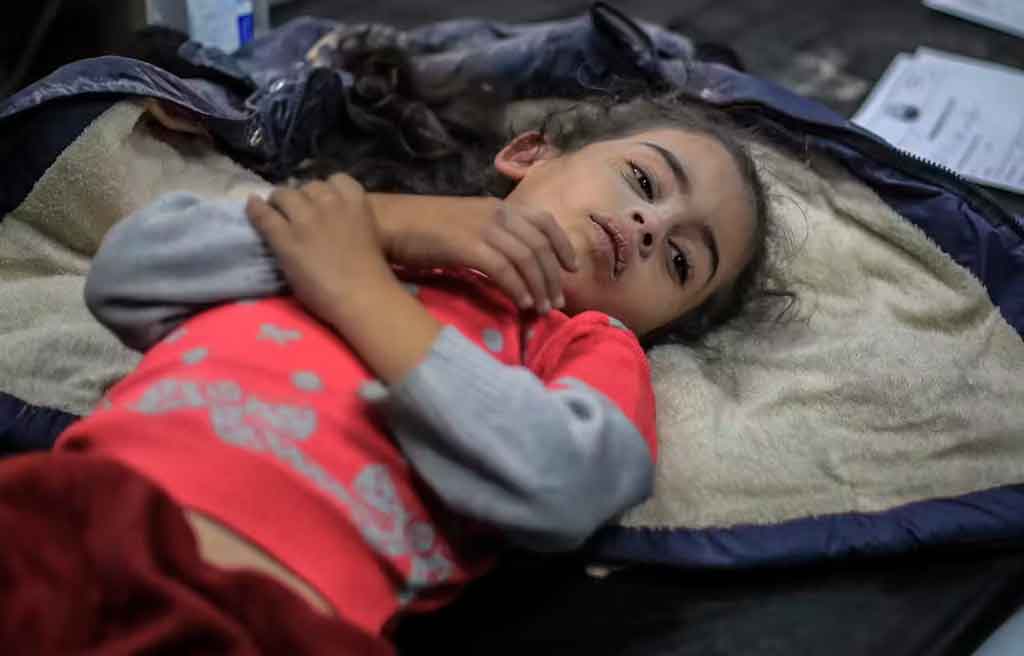
Ramallah, June 30 – Health authorities in the Gaza Strip warned today of the danger posed by the discovery of several cases of meningitis in children, amid the collapse of the health system in the territory due to the Israeli aggression.
In press statements, the director of the Medical Relief Organization in Gaza, Mohammed Abu Afash, noted that the health system in the coastal enclave is exhausted and cannot bear additional burdens.
Abu Afash warned that meningitis cases are increasing daily, which is unprecedented.
"We need clean water, while waste water is spread between the tents and shelters (...) we also need antibiotics, tonics and vitamins to strengthen children’s immunity," he said.
This weekend, the Nasser Medical Complex in Khan Yunis, located in the south of the territory, announced 35 confirmed cases of meningitis in minors.
Doctors described the incident as dangerous and worrying because it threatens to deepen the health catastrophe in Gaza caused by the war and the blockade imposed by Israel.
Doctors quoted by the Shebab news agency warned of the serious repercussions of this disease on children, particularly its impact on mental functions and cognitive abilities.
They emphasized that the rapid spread of the infection is due to overcrowding in the displacement camps and the deterioration of children's immune systems due to the severe malnutrition suffered by the majority of the population.
The administration of the complex is experiencing disastrous humanitarian and sanitary conditions due to severe shortages of medicines, antibiotics, and beds, they noted.
According to Shebab, the crisis forced medical staff to place some sick children on the floor for treatment.
A few days ago, the Ministry of Health stated that the health and humanitarian situation there had reached catastrophic levels due to the Israeli aggression.
It noted that hospitals still operating will soon shut down because the large number of injured and sick patients exceeds capacity, to which is added the lack of supplies.
Only 45 of the 312 operating rooms in the sector are currently operating at limited capacity, it emphasized.
Meanwhile, it indicated, there has been a collapse in the supply of medicines and healthcare products, a situation that negatively impacted specialized services, particularly for oncology and cardiac patients. (Text and photo: PL)